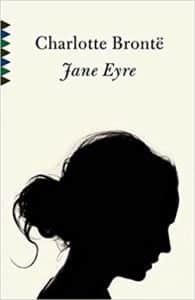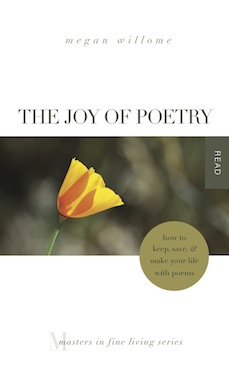In Reader, Come Home, Dr. Marianne Wolf talks about reading a short story called A manual for cleaning women, by Lucia Berlin. Wolf recalls having trouble entering into the story, but then the last line — “I finally weep” — changes everything. Suddenly Wolf can imagine herself as this cleaning woman. She enters someone else’s story.
That’s what happened to me when I reread Charlotte Brontë’s Jane Eyre. I’d first read it between college and graduate school, and at the time could not identify with Jane. This time I could.
I also could not stop thinking about how Jane is the perfect YA hero.
Reading deeply led to researching (somewhat deeply) and then to writing deeply. I came up with a list of 11 characteristics of YA novels and why Jane Eyre is one of them.
• Teenage protagonist. The story opens when Jane is 10 and spends many chapters in her first years at Lowood School, but the bulk of the story takes place in her teen years, between 13-19.
• First-person POV. Back in 1847 a first-person POV from a young woman was radical. This whole story is I-driven, Jane-rendered. She addresses the reader multiple times, with the benefit of hindsight.
• Plot-driven. Stuff happens in YA. Jane’s story unfolds slowly by today’s standards because it’s 172 years old. But I remembered all the major plot points because they’re so compelling.
• Go dark or go home. The stakes are high in YA. The fate of the world hangs in the balance, or at least, the fate of our hero. The physical and emotional abuse Jane suffers at Gateshead is much more harrowing than I remembered. Lowood School becomes, in essence, a morgue. Mr. Mason suffers human bite marks on his skin. Starvation on the moor is rendered in pang-inducing detail. Also, fire; beware!
• Secret talent. For Katniss in The Hunger Games, it’s archery. For Jane, it’s drawing. Not only is she talented at bringing faces to life, some of her art is prophetic.
• Emotional truth. A YA story has to feel true, even if the reader shares nothing in common with the hero. I am not an orphaned English governess, but I feel Jane’s passion, her determination, her self-assurance, and her cluelessness.
• Tragic flaw. Jane considers herself insightful — and she is — except when it comes to understanding what’s right in front of her. She’s clueless about Rochester, while vividly describing every clue.
• Anything goes. This book simultaneously embraces Christianity and criticizes it. Jane balks at the hypocrisy of Mr. Brockelhurst of Lowood School, and she rejects St. John, who only feels pious when he’s gloomy and suffering. And when she is desperate, she says something pretty scandalous for the time: “I have no relative but the universal mother, Nature: I will seek her breast and ask repose.”
• Sick burn. Many YA heroes are distinguished by their snappy retorts. Jane’s words usually cause other characters to judge her as mouthy and headed straight for hell. One of my favorite scenes is when St. John is trying to convince Jane that it is God’s will for them to marry and go to India as missionaries. Jane says she’ll go, but only as his “sister.” She refuses to marry him because he doesn’t love her. St. John objects that she’s giving God an imperfect sacrifice, and Jane comes back with, “Oh! I will give my heart to God…You do not want it.”
(Megan cheers.)
• Simple prose. This book does not always sound simple to our ears, but neither is it flowery. Another sick burn comes when Rochester asks her, “Am I hideous, Jane?” And she answers, “Very, sir; you always were, you know.”
• It’s the journey, silly. YA stories don’t always have happy endings, but they do end with the hero having grown, changed, or learned. Jane’s ending is remarkably happy, but she earns her happiness the hard way and on her own terms.
I don’t go this deep with every book I read. Frankly, not every book I read is worth it. But a book like this one, one that makes me imagine myself as a character I will never be, is like dressing up in someone else’s clothes and, for a while, making their story my own.
February Pages
Finished
Poetry
Hand in Hand: An American History Through Poetry, edit. Lee Bennett Hopkins, illus. Peter M. Fiore
Adult
Twirl, Callie Feyen (Book Club starts March 13!)
Love, Loss, and What I Wore, Ilene Beckerman
Early Readers and Picture Books
Snoopy and “It Was A Dark and Stormy Night,” Charles M. Schulz
Swan Lake, Mark Helprin, illus. Chris Van Allsburg
Mr. Bliss, J.R.R. Tolkien (Children’s Book Club meets March 8!)
Middle Grade and YA
Dear Mr. Henshaw, Beverly Cleary
Made Progress
Kristin Lavransdatter, Sigrid Undset
Your turn
1. What stories have you read that caused you to identify with a character, even one with whom you have nothing in common?
2. When is the last time you read something from the YA section of the library? (Hint: It’s not just for teens anymore.)
3. Did you make some time for deep reading this month? What stories stirred your soul?
4. Share your February pages. Sliced, started, and abandoned are all fair game.
Photo by 55Laney69, Creative Commons, via Flickr. Post by Megan Willome, author of The Joy of Poetry.
Browse more Reader, Come Home
“Megan Willome’s The Joy of Poetry is not a long book, but it took me longer to read than I expected, because I kept stopping to savor poems and passages, to make note of books mentioned, and to compare Willome’s journey into poetry to my own. The book is many things. An unpretentious, funny, and poignant memoir. A defense of poetry, a response to literature that has touched her life, and a manual on how to write poetry. It’s also the story of a daughter who loses her mother to cancer. The author links these things into a narrative much like that of a novel. I loved this book. As soon as I finished, I began reading it again.”
—David Lee Garrison, author of Playing Bach in the D. C. Metro
- Perspective: The Two, The Only: Calvin and Hobbes - December 16, 2022
- Children’s Book Club: A Very Haunted Christmas - December 9, 2022
- By Heart: ‘The night is darkening round me’ by Emily Brontë - December 2, 2022



Glynn says
I can think of so many characters I identified with. Perhaps too many. The German boy Werner in Anthony Doerr’s “All the Light We Cannot See” and Christopher Boone, the autistic narrator in Mark Haddon’s “The Curious Incident of the Dog in the Night-Time” are two contemporary ones.
Last time I read something from the YA shelves was this past month – “The 1000-Year-Old Boy” by Ross Welford (noted below). My deep reading was a biography, also noted below: “Robert Graves” by Jean Moorcroft Wilson. He was a war poet who didn’t want to be known as a war poet. He was raised as something of a conventional prude who got himself into a three-way marriage. He desperately wanted children and he turned his back on them. This is the man who wrote “I Claudius” and “Claudius the God” and some of the best love poetry of the 20th century. And he was full of contradictions.
February Reading
Fiction
The 1000-Year-Old Boy by Ross Welford
Mary Ventura and the Ninth Kingdom by Sylvia Plath (story)
Looking for Justice by Linda Rodante
More Than Friends by Autumn Macarthur
Before the Fall by Noah Hawley
Poetry
Black Sunday: Poems by Benjamin Myers
Three Poems by Hannah Sullivan
Some Permanent Things by James Matthew Wilson
Embracing Hope by Joy Lenton
Shrines of Upper Austria by Phoebe Power
Non-fiction
Dominion by Peter Ackroyd
London: The Illustrated History
Robert Graves by Jean Moorcroft Wilson
Mystery
The Magpie Murders by Anthony Horowitz
The Gathering Murders by Keith Moray
The Bridesmaid by Tim Darin Liskey
The Division Bell Mystery by Ellen Wilkinson
Megan Willome says
Christopher Boone is a great character. I’d love to see the Tony Award-winning play version of the book, which apparently has some neat visuals to get us into Chris’s head.
I will be checking out “The 1,000-Year-Old Boy.”
Glynn says
We saw the stage version of “Curious Incident” at the Repertory Theatre of St. Louis, and they did a wonderful job.
Megan Willome says
Oh, my! I hope they do it in the cities I visit regularly: Austin, San Antonio, or Waco.
Maureen says
I am making progress on ‘Ninth Street Women’ and ‘Hue’ (both are excellent but huge books). I read Dani Shapiro’s ‘Inheritance’ (a memoir), and read two more Tony Hoagland collections. I also finished Johann Hari’s ‘Lost Connections’. I’ve started Mark Nepo’s poetry collection ‘The Way Under the Way’ and, because of Glynn’s review, will also be reading Benjamin Myers’s ‘Black Sunday’, which arrived the other day. Am planning also to read Valerie Luiselli’s novel ‘Lost Children Archive’.
Megan Willome says
Thanks so much for chiming in, Maureen.
L.L. Barkat says
Amusing story:
I told my girls I was reading poems in a new eco-poetry anthology I picked up from the library. Sonia’s reply: “I thought you weren’t reading anything! You’re not allowed to! I feel betrayed.”
Sara laughed. “Mommy’s rules are Mommy’s rules. She can read poems, even if she’s not reading books.”
So, yeah, a big discussion ensued about what it means to read a book versus read poems—especially if the poems are in a book. I said poems are their own things, and that they operate differently in my mind and heart.
Sonia was unconvinced. Sara thought this all made perfect sense.
I find myself drifting very deeply into peaceful waters when it’s poems I’m reading instead of books. Proof of this is probably the incredible amount of mental bandwidth I’ve reclaimed and the surprising number of projects (some of them brand new, unexpected) I’ve completed since entering my bookless state.
Hee. 🙂 I did just order some Wangari Maathai books from the library though. I want to look at the table of contents and see what her themes were. Any woman who could, through her stunning vision and ingenuity, reforest magnificent swathes of an entire country must have had some simple principles she was operating by. I want to see what can be gleaned just from the TOCs. 🙂
Oh, and I have to say, this is such a fantastic exploration of Jane Eyre. It would make for a great classroom discussion.
Megan Willome says
I feel sure TOCs don’t count as reading. 🙂
Prasanta says
Megan, I enjoyed your defense as to why Jane Eyre is a YA novel. Jane Eyre is a favorite personal literary hero. She is radical for her time. She sticks to her convictions and isn’t afraid to speak up for herself. She’s courageous and forthright. She possesses self-respect and a healthy sense of self. Don’t get me started! 😉
Megan Willome says
Oh, you’ve started all right, Prasanta! Any other thoughts you’d like to add, please do.
For whatever reason, I could not appreciate Jane when I was in my early 20s. Now I want a T-shirt (or maybe a brooch).
Prasanta says
You know, I fully support the idea of a Jane Eyre t-shirt. I’d definitely wear one. I may have to add that to a future birthday list.